How Regular AC Maintenance Can Save You Money
Maintaining your air conditioner regularly is more than just a...
Installing a commercial HVAC (Heating, Ventilation, and Air Conditioning) system is a complex process that requires careful planning, expertise, and adherence to local regulations. Whether you’re upgrading an existing system or installing a new one for a commercial property in Florida, understanding the installation process is crucial. Here’s a detailed look at what to expect during the installation of commercial HVAC systems.
The first step in installing a commercial HVAC system is a thorough assessment of the building’s heating and cooling needs. HVAC engineers and technicians evaluate factors such as building size, layout, occupancy, and usage patterns to determine the appropriate system size and specifications. They also consider energy efficiency requirements and any specific comfort needs of the occupants.
Based on the assessment, HVAC professionals create a detailed design and engineering plan for the new system. This includes selecting the type of HVAC equipment (such as rooftop units, split systems, or packaged units), ductwork design, ventilation requirements, and zoning considerations. The design phase ensures that the system meets all building codes and regulations while optimizing performance and efficiency.
Before installation can begin, proper permits and approvals must be obtained from local authorities in Florida. HVAC contractors ensure that the installation complies with building codes, environmental regulations, and safety standards. This step is critical to avoid delays and ensure the legality of the installation process.
Preparing the site involves clearing the area where HVAC equipment will be installed and ensuring access for delivery and installation. HVAC technicians may need to make modifications to existing infrastructure, such as electrical systems or ductwork, to accommodate the new equipment.
The actual installation begins with placing and securing HVAC equipment according to the engineered design. This may include mounting rooftop units, setting up indoor units, and connecting ductwork and ventilation systems. HVAC technicians carefully follow manufacturer guidelines and specifications to ensure proper installation and functionality of each component.
Once the equipment is installed, HVAC technicians integrate the system with building controls and automation systems. They conduct comprehensive testing to verify that all components are functioning correctly and that the system operates efficiently. Testing includes airflow measurement, temperature control calibration, and checking for any leaks or malfunctions.
Commissioning is the final step where the entire HVAC system is fine-tuned and adjusted to achieve optimal performance. HVAC engineers conduct performance tests and provide training to building owners or facility managers on system operation and maintenance. After successful commissioning, the system is handed over for regular operation.
Post-installation, ongoing maintenance and support are essential to ensure the long-term reliability and efficiency of the commercial HVAC system. HVAC companies offer maintenance plans that include regular inspections, filter replacements, and preventive maintenance to minimize downtime and extend the lifespan of the equipment.
Installing a commercial HVAC system in Florida requires careful planning, precise execution, and compliance with local regulations. From initial assessment and design to installation, testing, and commissioning, each step is crucial to ensuring the system meets the building’s heating and cooling needs effectively and efficiently. For professional installation and reliable support throughout the process, contact our trusted HVAC company in Florida. We’re committed to delivering quality HVAC solutions tailored to your commercial property’s requirements.
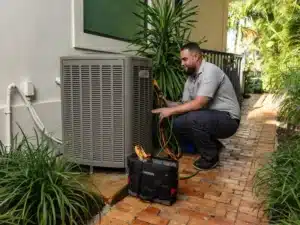
Maintaining your air conditioner regularly is more than just a...
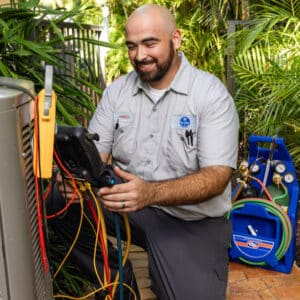
Florida homeowners rely on air conditioning more than most parts...
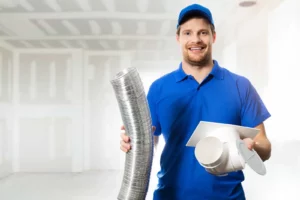
Indoor air quality is a major concern for many Florida...

Indoor air quality, often abbreviated as IAQ, plays a crucial...
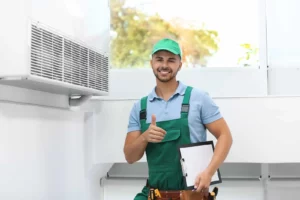
Installing a new HVAC system is a significant investment in...
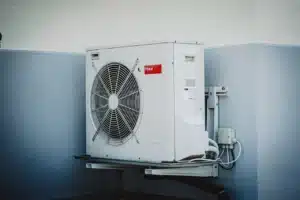
For many homeowners in Florida, the HVAC system is the...